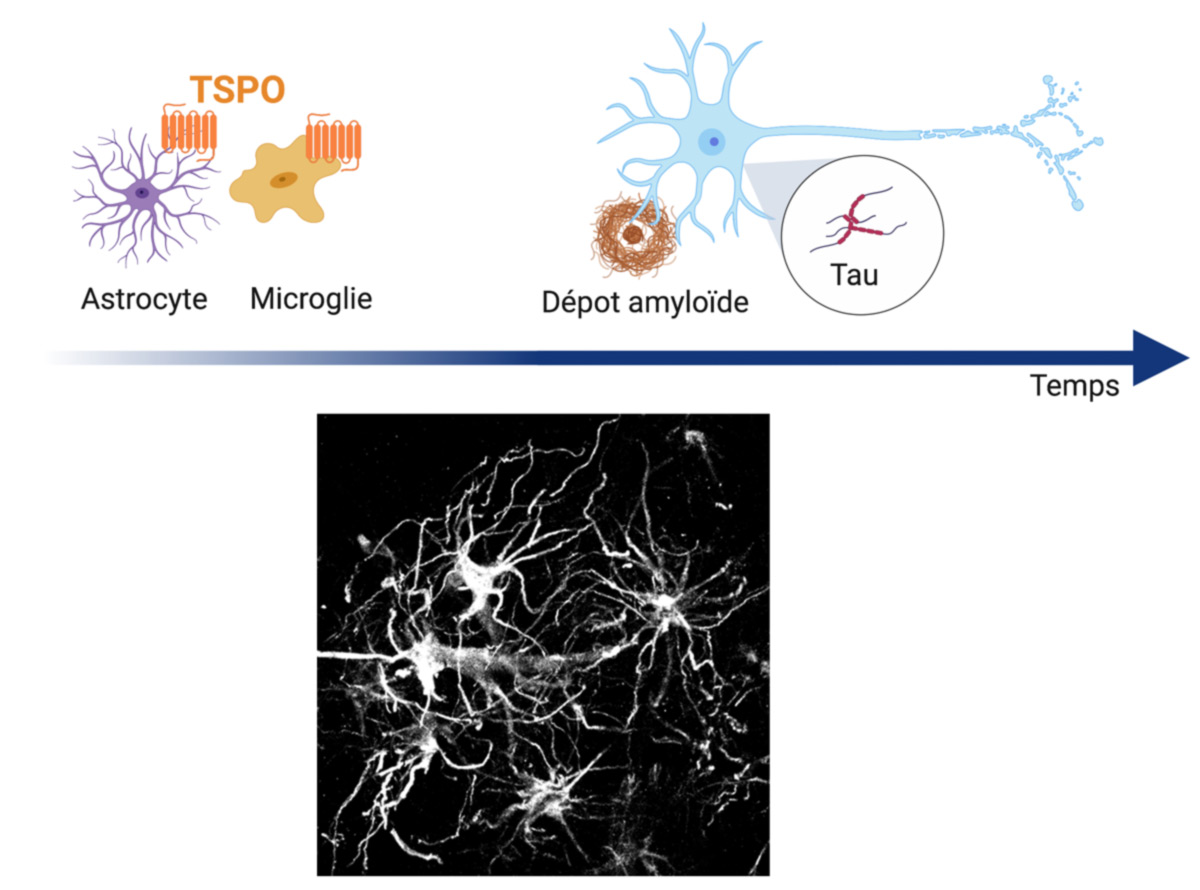MEMBERS
Philippe Millet


Philippe Millet, biophysicist, is an associate professor in the Department of Psychiatry at the UNIGE. He is interested in modelling biological processes in neuropsychiatric diseases using translational neuroimaging approaches, in particular nuclear imaging (PET and SPECT) in humans and small animals.
One of his main research objectives is to understand the involvement of glial cells and neuroinflammation in neuropsychiatric diseases, using in vivo and in vitro quantification of the 18 kDa translocation protein (TSPO). TSPO is overexpressed by astrocytes and microglia, two types of glial cells, during neuroinflammatory episodes observed in many neuropsychiatric diseases.
Study of TSPO Using Advanced Imaging and Molecular Biology Approaches
In order to understand the involvement of TSPO in neuropsychiatric diseases, it is crucial to develop dedicated and selective techniques. Quantifying TSPO is one such technical approach. It involves modelling TSPO pharmacokinetics as a function of its cellular origin. For example, it is important to distinguish an increase in its expression by microglia or astrocytes in a given disease. To this end, Philippe Millet’s laboratory is developing pharmacokinetic modelling tools and approaches at the cellular level. Understanding the biological significance of altered TSPO expression is also essential. For this reason, Philippe Millet’s research team uses immunohistochemistry, single-cell/nucleus RNA sequencing, spatial transcriptomics and proteomics approaches to study in depth glial cell alterations in neuropsychiatric diseases.

Involvement of glial Cells in Alzheimer’s Disease
Philippe Millet's group, through the work of Benjamin Tournier, a neuroscientist in the group, is interested in the role of glial cells in Alzheimer's disease. This pathology is characterised by an intraneuronal accumulation of Tau, an accumulation of extracellular β-amyloid (Aβ) and cognitive deficits linked to dysfunctions in neuronal circuits in which the hippocampus plays a major role. This project aims to gain a better understanding of the role of hippocampal TSPO in the onset and progression of symptoms. In addition, in collaboration with Kelly Ceyzériat, a neuroscientist at the Biomedical Imaging Center of the UNIGE and the HUG, the mechanisms of onset and progression of AD pathology are being studied, with a particular interest in hormonal and neuroinflammatory modulators. One of the projects of this collaboration is to evaluate the effects of low-dose radiotherapy in targeting the amyloid component and neuroinflammation of AD.

Involvement of glial Cells in Bipolar Disorder
Patients suffering from bipolar disorder show alterations in their immune system. The hypothesis put forward by Philippe Millet and his collaborator Stergios Tsartsalis, clinician-scientist at the HUG, is that these alterations are linked to the dysfunction of astrocytes and microglia, the cells that orchestrate immune reactions in the central nervous system. Their aim is to gain a better understanding of the underlying altered signalling pathways in microglia and astrocytes. Their approach focuses on the molecular targets associated with the genetic risk of the disease. The ultimate aim of their project is to identify and then develop new biomarkers for diagnosis and new therapeutic targets for the disease.


Philippe Millet's Team
